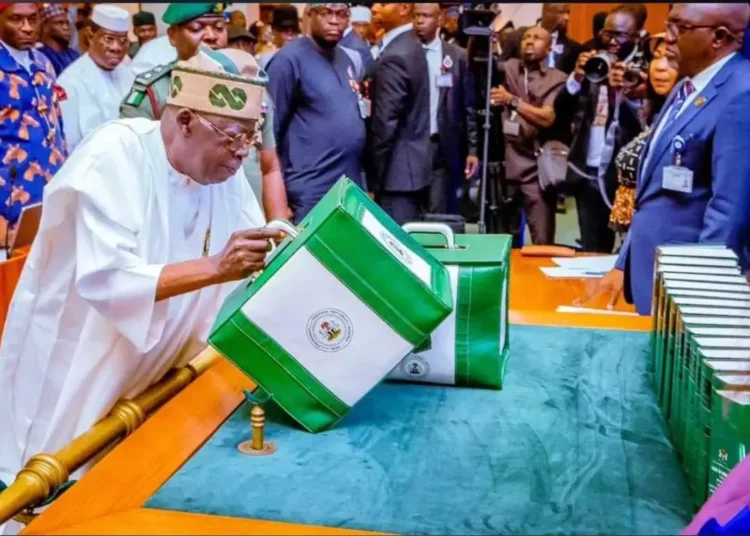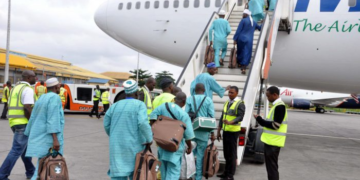In a historic move to bolster national security, President Bola Ahmed Tinubu-led government has allocated an unprecedented N4.91 trillion to the military and police in the 2025 federal government budget.
Dubbed the “Budget of Restoration: Securing Peace, Rebuilding Prosperity,” the federal government say the proposal underscores the administration’s commitment to addressing Nigeria’s persistent insecurity and creating an environment conducive to economic growth.
Presented to a joint session of the National Assembly on Wednesday, the budget outlines a strategic plan to restore federal authority in ungoverned spaces that have been destabilized by insurgencies, banditry, and criminal activities. President Tinubu emphasized that reclaiming these regions is critical for rebuilding governance and economic stability.
The budget also prioritizes the safeguarding of Nigeria’s borders—land, maritime, and airspace—to deter both internal and external threats. Enhanced surveillance and investments in modern defense technologies are set to fortify the nation’s security architecture.
The allocation aims to build on Nigeria’s recent successes in curbing terrorism, banditry, and communal conflicts, particularly in the North-East, North-West, and central regions. Insurgencies are being contained, and incidents of kidnappings and armed banditry are reportedly on the decline.
For the Nigerian Armed Forces, the budget provides resources to intensify operations against insurgent remnants, protect vulnerable communities, and secure critical economic assets such as farmlands and industrial hubs.
The Nigeria Police Force, meanwhile, is poised for significant modernization. With enhanced funding, the police will acquire advanced equipment, improve intelligence gathering, and adopt community-driven strategies to tackle internal security challenges.
President Tinubu’s administration says it recognizes the inextricable link between security and economic development. Insecurity has disrupted access to agricultural lands, markets, and industries, stifling economic activities in affected regions. By restoring peace, the government hopes to unlock these areas’ potential, promoting trade, job creation, and poverty alleviation.
Additionally, securing critical national infrastructure—including transportation networks, industrial zones, and energy facilities—will boost investor confidence. A stable and secure environment is essential for attracting both domestic and foreign investment, fostering innovation, and driving sustainable economic growth.
If approved by the lawmakers, a significant portion of the N4.91 trillion allocation will be directed toward modernizing Nigeria’s security apparatus and improving personnel welfare. Key initiatives include:
The President claims that he is determined to procuring state-of-the-art military hardware and surveillance technology to fight terrism and other crimes while also enhancing welfare packages to boost morale and operational efficiency.
The aim is to equip the armed forces and police with the tools and skills needed to confront contemporary security challenges effectively.
During his presentation, President Tinubu articulated the administration’s vision of a secure and prosperous Nigeria:
“This budget provides the resources and direction needed to not just defend, but restore; to not just fight, but to finish. We are reclaiming every inch of our territory, safeguarding our borders, and building a secure future for all Nigerians.”
The president’s remarks encapsulate the government’s resolve to not only address immediate security threats but also lay the foundation for long-term peace and stability.
The 2025 budget is a shift in Nigeria’s approach to national security. With a record N4.91 trillion allocation, the Tinubu administration seems to be matching words with action in tackling insecurity head-on while fostering conditions for economic revival.











